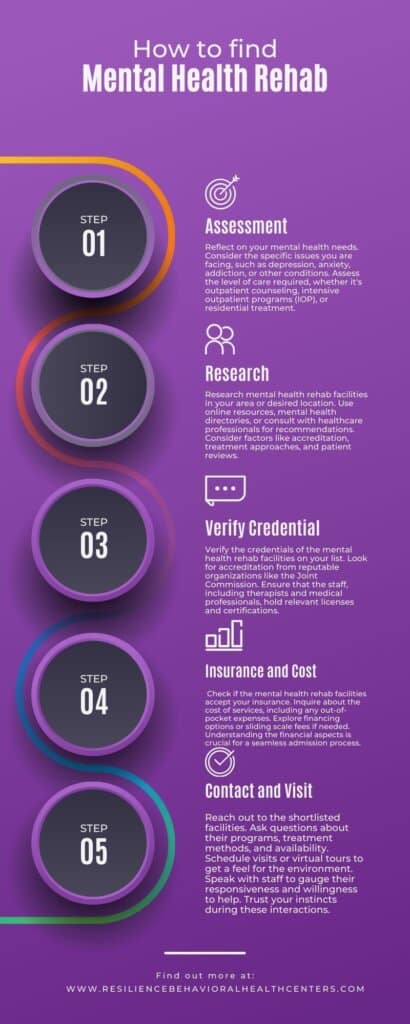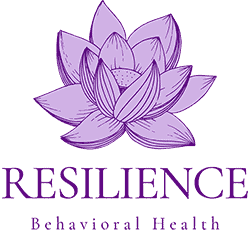The Role of Medication-Assisted Treatment in Massachusetts Mental Health Centers
In 2021, 60 million people used opioids. 60 MILLION?! Yes, opioid misuse is spreading like a fire in the forest, and once again, mental health center treatment facilities in Massachusetts are one step ahead.
Medication-assisted treatment (MAT) has become a revolutionary force in the changing field of mental health treatment, particularly in states like Massachusetts that are well-known for their progressive healthcare policies. This article delves into the profound significance of MAT and outlines how individuals can recognize their need for it.
So, are you ready to explore the multitude of benefits it offers to those endeavoring to overcome substance use disorders?
What is Medication-Assisted Treatment?
Medication-assisted treatment involves the use of FDA-approved medications alongside counseling and behavioral therapies to address substance use disorders comprehensively.
This holistic approach recognizes addiction as a complex interplay of physical and psychological factors to improve overall well-being. MAT can provide a personalized and multifaceted strategy for recovery, offering individuals a realistic and sustainable path toward long-term success.
How Do You Know If You Need MAT?
Determining the need for Medication-Assisted Treatment is a nuanced process that involves recognizing several indicators. Persistent and intense drug or alcohol cravings, despite earnest attempts at sobriety, often signal a potential need for MAT.
Individuals who find themselves in a cycle of relapse, engage in high-risk behaviors, or grapple with co-occurring mental health issues may also find MAT to be an invaluable addition to their treatment plan.
Benefits of Medication-Assisted Treatment Programs
Reduced Drug and Alcohol Cravings
The primary benefit of MAT lies in its remarkable efficacy in reducing the severe cravings that typically accompany substance withdrawal. Medications such as Naltrexone, Buprenorphine, and Methadone act on the brain’s receptors, disrupting the pleasurable effects of drugs.
By doing so, MAT provides individuals with a respite from the constant pull of cravings, creating a stable foundation for recovery.
Higher Rate of Patient Survival
MAT plays a pivotal role in reducing the risk of fatal overdoses, a significant concern in the landscape of substance abuse. Particularly for individuals grappling with opioid addiction, medications like Naltrexone and Buprenorphine act as literal life-savers.
By blocking the euphoric effects of opioids, these medications not only support sobriety but also significantly contribute to increased patient survival rates.
Reduced Rates of Criminal or Risky Behaviors
Substance use disorders often propel individuals into a cycle of criminal or risky behaviors driven by the desperation to sustain their addiction. MAT intervenes by addressing the root cause – the cravings for drugs.
Hence, individuals are less likely to engage in criminal activities to support their addiction, contributing to a reduction in overall criminality and enhancing community safety.
Minimizes the Presence of Cravings
A critical aspect of MAT is its ability to minimize the persistent presence of cravings that can derail even the most determined recovery efforts. Medications stabilize the brain’s reward system, assisting individuals in regaining control over their impulses. This empowerment proves instrumental in resisting the allure of substances.
Supports Relapse Prevention
MAT goes beyond mere symptom management; it actively supports relapse prevention by addressing the multifaceted nature of addiction. The combination of medications and therapeutic interventions equips individuals with the tools to navigate triggers, manage stressors, and cultivate coping mechanisms essential for sustained recovery.
MAT is a comprehensive approach that not only assists in overcoming addiction but also helps individuals build resilience against potential setbacks.
Enhance The Effectiveness of Behavioral Therapies
By providing a foundation of stability through medication, individuals are better equipped to fully engage in therapeutic interventions such as cognitive-behavioral therapy (CBT) and contingency management.
This collaboration between medications and behavioral therapies empowers individuals to develop coping mechanisms, address underlying issues, and acquire the skills necessary for sustained recovery.
Tailored Approaches for Different Substances
MAT stands out for its adaptability, offering tailored approaches to address a spectrum of substances, including opioids, alcohol, stimulants, and more. This versatility ensures that individuals receive personalized treatment based on the specific challenges posed by their substance use disorder.

Best Medications for Opioid Misuse
According to NIMH, the following medications have shown significant improvement in individuals suffering from opioid misuse. Their social functioning improved, and the transmission rate of HIV and Hepatitis decreased.
Naltrexone
Naltrexone, classified as an opioid receptor antagonist, stands as a cornerstone in MAT. By blocking the effects of opioids, Naltrexone aids individuals in overcoming physical dependence, reducing cravings, and preventing relapse.
Its long-acting injectable form ensures consistent medication delivery, enhancing treatment adherence and overall efficacy.
Buprenorphine
Buprenorphine addresses cravings and withdrawal symptoms without inducing the intense euphoria associated with full opioid agonists. This makes it a valuable tool for a smoother transition to recovery, providing individuals with the necessary support without the pronounced highs and lows of traditional opioid use.
Methadone
Methadone, a full opioid agonist with a long track record in addiction treatment, also offers stability by reducing cravings and withdrawal symptoms. Administered under strict supervision in specialized clinics, it provides a controlled and structured approach to opioid addiction treatment.
Its longevity allows for sustained relief, enabling individuals to focus on their recovery journey with reduced distractions.
MAT in Mental Health Treatment Center Massachusetts
Medication-assisted treatment (MAT) is increasingly recognized as a crucial tool in addressing substance use disorders and improving mental health outcomes, especially in Massachusetts, which the opioid epidemic has heavily impacted.
The Steppingstone Center
Locations
Fall River, MA
New Bedford, MA
Services
- Medication-assisted treatment (MAT): Methadone, buprenorphine, and naltrexone for opioid use disorder.
- Outpatient clinics: Provide individual and group therapy, counseling, and case management.
- Residential treatment: Offer various programs for individuals with substance use disorders and co-occurring mental health conditions.
- Recovery housing: Supportive housing options for individuals transitioning back into the community.
- Homeless resources: Assistance with shelter, food, and other essential needs for homeless individuals.
BrightView Health
Locations
Brighton, MA
Hyannis, MA
Services
- Outpatient MAT programs: Individual and group therapy, and peer support services.
- 24/7 admissions: Ensure immediate access to treatment for individuals in need.
- Case management: Help patients overcome barriers to recovery, such as employment and housing challenges.
- Connections to community resources: Build a support network for long-term success.
Woburn Addiction Treatment
Location
Woburn, MA
Medication Options
- Methadone
- Buprenorphine
Services
- Medication management: Make necessary dosage adjustments and continuous monitoring of medications.
- Individual and group therapy: Address the psychological and emotional aspects of addiction alongside medication.
- Counseling: Give support and guidance on coping skills, relapse prevention, and overall recovery.
- Case management: Assist with housing, employment, legal issues, and other social determinants of health.
- Peer support groups: Connect individuals in recovery with a supportive community.
- Education and outreach: Provide information about addiction and recovery to patients, families, and the community.
Final Words
As Massachusetts Mental Health Centers continue to refine their approach to substance use disorders, Medication-Assisted Treatment emerges as a linchpin in the pursuit of holistic recovery. By addressing the physical and psychological facets of addiction, MAT offers individuals a comprehensive strategy to navigate the challenging road to recovery.
MAT proves its efficacy in reshaping lives and fostering a future marked by health and stability through reduced cravings, increased patient survival, and decreased risky behaviors. Without any doubt, Medication-Assisted Treatment is a steadfast partner, guiding individuals toward lasting wellness and empowering them to reclaim the vibrant tapestry of their lives.
What’s Next?
After learning about MAT, it’s time to find an accredited and reputable facility for your treatment. The options provided above should give you a great starting point, so you can book scheduling, figure out durations, know about finances, etc.
How about we add a little speed and convenience to your research?
Let Resilience Behavioral Health do all the legwork for you; we’ll get all the tailored treatment plans for your exact symptoms.
Reach out by clicking here to book a consultation or call 888.401.1179 to learn more.


